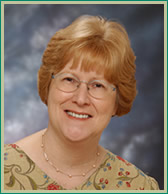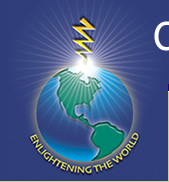
The Healing Power of Forgiveness
|
 |
|
Claire Sheff-Kohn |
And forgive us our trespasses as we forgive those
who trespass against us.
From the Lord’s Prayer in the Anglican Book of Common Prayer, 1662
I have to admit that I struggled with writing about the topic of forgiveness—maybe because forgiveness is hard for me. Being of Irish descent, my family members often quote Judy Collins’ saying: “Irish Alzheimer’s: you forget everything except the grudges.” (Sometimes they direct this at me!) Okay, maybe it was hard for me to finally forgive my younger sister for ruining my pristine collection of dolls when we were children, or my older brother for scaring me half to death whenever my parents left him in charge. Kidding aside, though, when I began thinking about forgiveness in my own life, I realized that I view it as a hierarchy—from the more easily forgiven offenses to those most difficult to forgive. In my scheme of forgiveness, I am most able to forgive offenses against me personally, but I find it much harder to forgive someone who has hurt someone I love. Similarly, I find it really hard to forgive myself when I hurt someone else.
Then there’s what I think of as forgiveness on a grand scale—the ability to forgive the most heinous of deeds. When I hear stories of this level of forgiveness, I wonder if I have that capacity in me at all. Fortunately, my life has been sufficiently blessed that I have not been so tested. I remember being tremendously moved by an incredible act of forgiveness in October 2006, when Charles Roberts, a 32-year-old milk truck driver, shot 10 Amish children, mortally wounding five of them and then killing himself. Astonishingly, the families of the slain girls forgave Roberts and reached out to his family. Some of the Amish attended Roberts’ funeral and invited members of his family to attend the funerals of the murdered Amish children. When contributions came in from all over the U.S. for the victims’ families, they insisted that the money be shared with Roberts’ wife and children. Watching these grieving families forgive the perpetrator of their tragic loss was a lesson in forgiveness on a grand scale.
I have been similarly moved by other examples of grand-scale forgiveness. In her film As We Forgive: The Story of Rwanda’s Redemption, Laura Waters documents the stories of two Rwandan women who come face-to-face with the men who had savagely murdered their families during the 1994 genocide, and four neighbors who were on opposite sides of this genocidal bloodbath. With the courts gridlocked by so many backlogged cases, the Rwandan government released over 50,000 murderers back into their communities and decided that, while justice could not be achieved, perhaps reconciliation could restore a sense of community. Waters’ touching, inspiring movie is about the six protagonists’ “extraordinary journey from death to life through forgiveness.”
As most of us know, forgiveness has been an ongoing theme in most organized religions; depending on the tenets of a particular religion, forgiveness is sought from either God, from the individual against whom a wrong has been committed, or from both. Such adages as “forgive and forget” are embedded in our culture. Despite its omnipresence in our religious traditions and culture, forgiveness is neither automatic nor easy—either in the seeking or the granting—but it is widely considered to be an act of virtue.
Now forgiveness has crept into the social sciences and medicine as well. In the two examples of forgiveness noted above, as well as others studied by Dr. Frederic Luskin as part of the Stanford Forgiveness Projects (Northern Ireland, Sierra Leone, the World Trade Center, etc.), there is growing evidence of the healing power of forgiveness.
Based on his research, Dr. Luskin has developed a nine-step process of forgiveness, authored a book (Forgive for Good), been featured in a PBS program on forgiveness, and developed skills-based forgiveness training. (More information is available at www.learningtoforgive.com.) While Dr. Luskin discovered that forgiveness could be learned, Dr. Robert Enright, a University of Wisconsin-Madison professor, is considered the “father of forgiveness studies” because he began researching this topic as early as 1985. He is a founding member of the International Forgiveness Institute, the author of four books on forgiveness (including one for children), and the architect of forgiveness education programs with children in Milwaukee and Belfast, Ireland. (Check out www.thepowerofforgiveness.com.) These two “forgiveness pioneers” have found that employing forgiveness allows those who have been treated unjustly to improve their emotional health.
Now medical studies also point to the healing power of forgiveness. For example, the Mayo Clinic says, “Learning to forgive may improve well-being.” This body of research shows that “holding a grudge appears to affect the cardiovascular and nervous systems.” Letting go of grudges—forgiving —can reduce or even eliminate negative symptoms.
So whether on a small or large scale, forgiveness is a virtue. It also is a clear example of a mind-body connection—in which the spiritual, physical, and mental health of an individual can be positively or negatively affected by the actions he or she takes. By having learned all of this while struggling with this article, I hope to be able to practice more forgiveness in my own life. Ultimately, I think it will benefit me far more than those I may forgive.
To forgive is to set a prisoner free and to discover that the prisoner was you.
Lewis B. Smedes
![]()
Center for Empowered Leadership ®
Email: info@cfel.org
Phone: 1.609.259.7911
